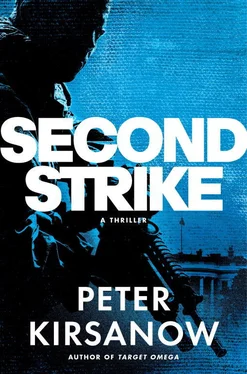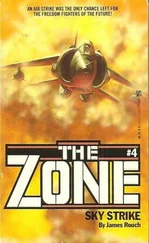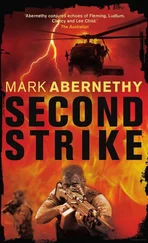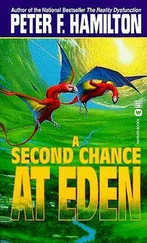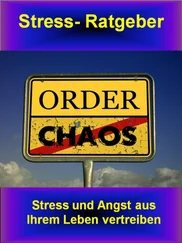The infernal American operator knew, of course. He knew the signature of a Russian operation. And he knew the assassin. Thus, the American president knew. But mere knowledge was immaterial in international relations. Nations couldn’t, and didn’t, act publicly based on knowledge. They acted on proof—especially when a nation’s allies assiduously resisted anything that might involve tough choices, let alone the possibility of military reprisal. No one wanted to go to war with a nuclear power over suicide attacks that, by all accounts, had been perpetrated solely by jihadists untethered to any nation-state.
Nonetheless, the West’s reaction to the troop buildup was ample sanction. Russia was worse off now than before the entire operation, including the EMP affair. There was no denying it was a disaster, all because of that abominable American operator.
The patrician, however, remained unaffected. Throughout, he had performed his role brilliantly. Indeed, the aspects of the operation for which he was responsible proceeded precisely as planned, despite all of the constraints under which he labored. Mikhailov recognized this. Indeed, Mikhailov had quietly rewarded him for it—both financially and with an even more trusted role in the Russian president’s orbit.
Perhaps just as important, he remained a trusted confidant of the American president.
The patrician flicked the cigarette onto the beach below and opened the sliding screen doors leading to his darkened study. Somewhere outside he could hear the radio belonging to members of his protective detail broadcasting the Orioles–Indians game. It was the middle of the seventh, the Indians with a 5–3 lead. Stretch time.
He padded to the bar next to the bookcase and poured himself a glass of Smirnoff, room temperature. Then he sat in a high-backed leather chair facing the balcony and took a long, slow sip—but not a mournful one, not one prompted by failure and dejection. Rather, a contemplative one—one to slow, order, and distill his thinking.
They had suffered a crushing defeat, even if their adversary didn’t fully realize just how big a defeat it was. But they had suffered seemingly crushing defeats in the past, only to emerge the victor in the long run. And so it would be once more.
Because it wasn’t over.
The Western powers, having imposed sanctions and deployed military assets, would be satisfied that Russia had been dealt with, the matter concluded. They would then turn their attentions to the latest frivolity, convincing themselves it was some matter of importance.
The patrician, however, knew that the West’s demise lay dormant here in the United States, somewhere in a rural county in the southeast part of the country. And every single person in the United States but the patrician was oblivious to it. In fact, only two others in the entire world were not oblivious to it.
Consequently, no one would find it. It would remain hidden until unearthed from deep beneath the floorboards of a rickety wooden barn that stood approximately two hundred feet from a pile of cinder blocks and ashes that had once been the home of Oleg Nikolin of Leningrad and Aleksandra Ivanova of Moscow.
And shortly after it had been unearthed, Russia, ever destined to rule the world, would finally do so.
All things considered, matters could hardly be better. Perhaps not for Russia. The event had been a disaster, and the subsequent sanctions, recriminations, and retributions were severe.
But for Aleksandr Stetchkin, life was good and the future promising. After all, ruthlessness and treachery were irreplaceable assets.
Within days of the debacle, many of those associated with it had disappeared. The more fortunate were merely fired or demoted.
Stetchkin personally supervised the unceremonious execution of Major Volkov. A single shot to the back of the head. The idiot had guaranteed the success of the event. He deserved the appropriate consequences for its failure.
Stetchkin had, understandably, been anxious after the event had failed. More accurately, he had been petrified. Mikhailov had excoriated him for eliminating Piotr Egorshin, and Stetchkin was afraid the Russian president would, therefore, hold him responsible for the failure of the entire plan.
But as the days passed, it became clear that Mikhailov needed him. A man with Stetchkin’s talents was invaluable, especially given Yuri Mikhailov’s grand ambitions. Besides, he and Mikhailov were longtime friends, former KGB colleagues. Those who had disappeared were cyphers.
Stetchkin—as well as everyone else associated with the event for that matter—remained mystified as to what had gone wrong. Stetchkin was convinced, however, that Piotr Egorshin had somehow sabotaged it. The supposed genius had done or failed to do something to make the computers go awry. The other imbeciles didn’t believe it. They thought Egorshin a patriot. Besides, he was already dead by the time of the calamity.
But the devious are difficult to deceive. Stetchkin was convinced that Egorshin’s uncle, the SVR man Morosov, was somehow involved.
No one could find any evidence that the computers had been tampered with. They’d devoted several teams of the best and brightest to the endeavor, only to find nothing whatsoever. The failure was inexplicable.
But Stetchkin knew better. Nothing is inexplicable, and if it appears inexplicable, it’s the result of human intervention. So Stetchkin had ordered surveillance videos of the operations room from the time of the last simulation to the time the event was to have been initiated. Over and over he reviewed the videos for any peculiarities or anomalies, but nothing seemed amiss or unusual.
At one point in the video Morosov appeared. He spoke briefly to two supervisors and then entered Egorshin’s office to retrieve personal effects. He hadn’t lingered and it didn’t appear as if he had disturbed anything or taken anything he shouldn’t have taken. Throughout, he was under the close scrutiny of a number of security officers.
Nonetheless, Stetchkin persisted. He slowed the video to a crawl and viewed it second by second. He studied still images and scanned from every angle available. Everything Morosov did, every move he made, appeared innocuous. At another point he’d left, only to return to collect a photo of Tatiana Palinieva.
Frustrated, Stetchkin only became more suspicious. He decided, admittedly without evidence, that Morosov must be the culprit. Accordingly, he decided Morosov must be eliminated. And Stetchkin planned to have Morosov eliminated later tonight.
He sat comfortably in the rear of his armored Kortezh SUV, his driver and a bodyguard in front. It was a beautiful evening. There was a slight chill in the air, but otherwise it was still. A short distance ahead he could see the carriage lights atop the posts flanking the wrought iron gate leading to his residence, which gates swung open upon the SUV’s approach. An armed guard emerged from a kiosk just inside the gate and waved in deferential acknowledgment.
Palinieva. She was afraid of him, naturally. She was smart enough to surmise that he may have had something to do with Egorshin’s death. And that was a good thing. Fear was a good thing. It would make her compliant, if not willing. With time she might even grow to like him. A man with his power and wealth could do wonders for her career. Either way, it didn’t matter. He would have his way.
In the darkness of the back seat Stetchkin smiled. He decided he’d pay a visit to Palinieva a bit later this evening. It was still relatively early, after all. He’d grab a quick shower and then have his driver drop him off. He smiled again, more broadly.
The vehicle stopped at the front door, which was opened from the inside by a large bodyguard, who retreated to a small room containing an array of surveillance cameras. Stetchkin stepped inside. There wasn’t a single inch of the grounds that wasn’t under observation at all times. In addition to his driver and bodyguard, a dozen other armed security officers were stationed about the grounds and residence.
Читать дальше
